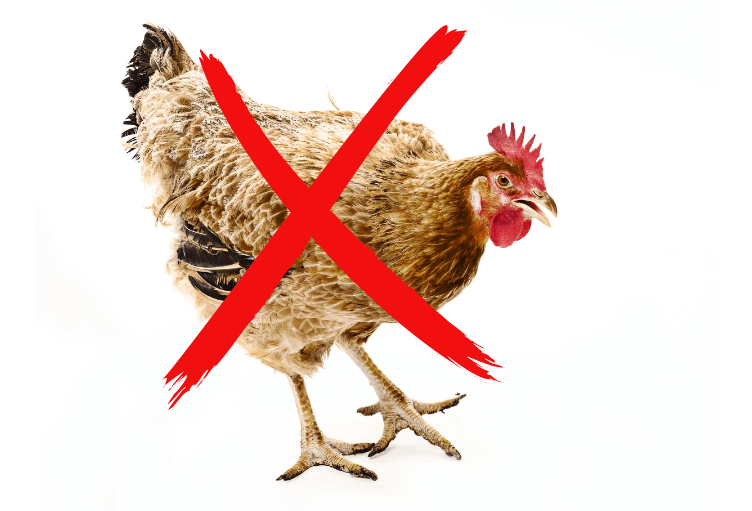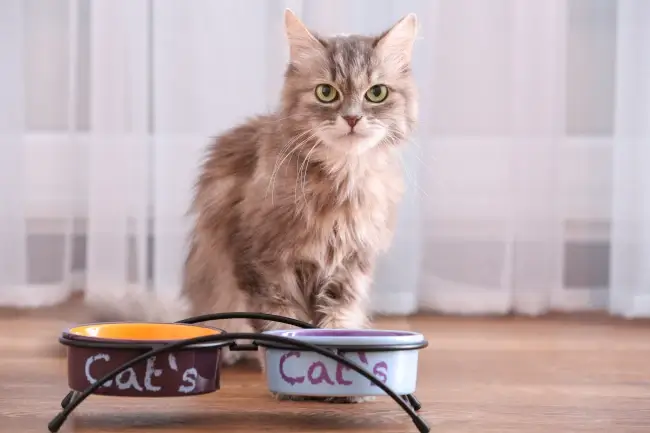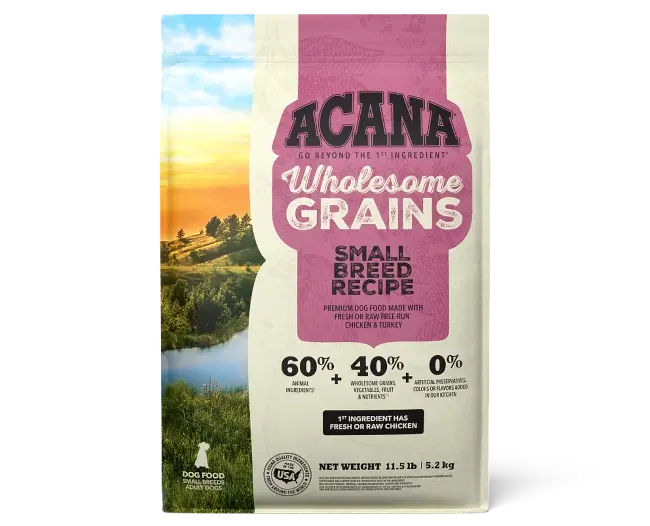Are Eggs Good for Cavapoos?

As a Cavapoo dog owner, you want to make sure your doggie companion is getting the best possible nutrition.
While it can be tempting to stick to the same old kibble and canned foods, adding variety to your dog’s diet can offer numerous benefits.
One food that many dog owners consider adding to their dog’s diet is eggs.
But before you start scrambling up a batch for your pup, you might be wondering, “Are eggs good for Cavapoos?”
In this article, we’ll explore the benefits of feeding eggs to dogs, including the various types of eggs, how much dogs can eat, and at what age puppies can start enjoying this nutritious treat.
So, let’s crack open this topic and find out if eggs are a healthy and safe addition to your dog’s diet!
Are Eggs Good For Cavapoos?
Discover the incredible health perks of eggs for your Cavapoo.
Eggs are nature’s perfect food, containing all the essential nutrients a growing chick requires before emerging from its egg.
Let’s explore some of the vital components in eggs that make them so beneficial for dogs.
Protein
Eggs offer an incredibly rich source of amino acids, which are the foundation of proteins.
By incorporating eggs into your dog’s meals, you’re giving their diet a protein-packed punch.
Vitamins and Minerals Galore
Eggs truly are a nutritional treasure trove, boasting an impressive array of vitamins and minerals that contribute to your dog’s well-being.
Some of these essential nutrients include:
- Vitamin A
- Folate
- Riboflavin
- Iron
- Vitamin B12
- Selenium
- Antioxidants lutein and zeaxanthin
- Fatty acids
So next time you’re whipping up breakfast, remember to share the goodness of eggs with your canine companion!

Are Scrambled Eggs Good For Cavapoos?
Scrambled eggs are a popular choice for a quick and delicious breakfast, and they can also be a safe and nutritious option for your Cavapoo.
Scrambled eggs are best prepared without any additional ingredients like salt, pepper, or butter.
While these seasonings may enhance the taste of humans, they can be potentially harmful to dogs.
Dogs have different sensitivities, and certain spices or condiments may upset their stomach or even be toxic to them.
It’s always best to keep things simple and stick to plain scrambled eggs.
You can use a non-stick pan or a small amount of cooking oil suitable for dogs (such as coconut oil) to prevent sticking.
Cook the eggs until they are fully set, ensuring that both the yolk and the white are completely cooked through.
While scrambled eggs can be a healthy addition to your dog’s diet, they should not replace their regular balanced meals.
Dogs have specific nutritional requirements that need to be met, and a well-balanced diet consisting of high-quality commercial dog food is essential for their overall health.
When it comes to portion sizes, consider your dog’s size and individual needs.
As a general guideline, smaller dogs may benefit from about a quarter to half a scrambled egg per serving, while larger breeds can have half to a whole egg.
Please, keep in mind that these are rough estimates, and consulting with your veterinarian is always recommended to determine the appropriate portion sizes for your specific dog.
Always consult with your veterinarian for personalized advice on feeding scrambled eggs or any other food to your beloved Cavapoo.
Boiled Eggs For Cavapoo
Boiled eggs can be a simple and healthy addition to your dog’s diet.
Boiled eggs are easy to prepare and can provide your dog with a nutritious boost.
They are a great source of protein, which is essential for muscle development and repair, as well as overall growth and health.
After the eggs have boiled for the desired length of time, remove them from the heat and let them cool down before serving them to your dog.
This will prevent any potential burns and allow the eggs to be easily handled.
Once the boiled eggs have cooled, carefully peel off the shell before offering them to your dog.
It is necessary to remove the shell because it can pose a choking hazard, and the shell itself is not easily digestible for dogs.
You can serve the boiled eggs as a standalone treat or incorporate them into your dog’s regular meals.
For example, you can chop or mash the boiled eggs and mix them with your dog’s kibble or wet food.
When it comes to portion sizes, as a general guideline, small dogs may benefit from half a boiled egg per serving.
They are a good source of protein and can be incorporated into your dog’s meals for added variety.
Remember to peel off the shell before serving and to offer boiled eggs in moderation.

Can Cavapoos Eat Poached Eggs?
For sure!
Poached eggs can be a delightful and nutritious addition to your dog’s diet.
They are a good source of protein, vitamins, and minerals, making them a healthy treat for your canine companion.
Before offering poached eggs to your dog, make sure that they are fully cooked.
This is to eliminate any potential health risks associated with raw or undercooked eggs, such as the presence of harmful bacteria.
You can serve the poached eggs as a standalone treat or incorporate them into your dog’s meals.
Smaller dogs may benefit from half a poached egg per serving, while larger dogs can have a whole poached egg.
As always, adjust the portion size based on your dog’s overall calorie intake to maintain a healthy weight.
Are Fried Eggs Okay For Cavapoos?
Fried eggs can be a delicious treat for humans, but when it comes to dogs, you need to exercise caution.
Fried eggs are typically cooked in oil or butter, which can add flavor and richness to the eggs.
However, the added fats and oils used in frying can be problematic for dogs, especially those with sensitive stomachs or those prone to pancreatitis.
While it’s best to avoid frying eggs for your dog, there are alternative methods to achieve a similar outcome without the added fats.
Here’s a safer way to prepare “fried” eggs for your Cavapoo:
- Non-stick cooking spray: Instead of using oil or butter, lightly coat a non-stick pan with pet-safe cooking spray. This will help prevent sticking without adding excessive fats.
- Low heat: Use a low heat setting to cook the eggs slowly and evenly. This will allow the eggs to cook thoroughly without burning or becoming overly greasy.
- Cook until fully set: Ensure that both the yolk and the white are fully cooked. Undercooked eggs can pose a risk of bacterial contamination, so it’s important to eliminate this risk by cooking them completely.
By following these steps, you can achieve a healthier version of “fried” eggs for your dog.
Fried eggs should be offered in moderation and as an occasional treat.
Smaller dogs may benefit from about a quarter to half a fried egg per serving, while larger dogs can have half to a whole fried egg.
It’s always best to consult with your veterinarian to determine the appropriate portion sizes for your specific dog.

Can Cavapoos Eat Egg Shells?
While dogs can consume small amounts of crushed eggshells, these need to be fed with caution.
Eggshells are primarily composed of calcium carbonate, which is a source of calcium.
Calcium is an essential mineral for dogs, as it supports bone health, muscle function, and other vital physiological processes.
Some dog owners choose to incorporate crushed eggshells into their dog’s diet to provide an additional source of calcium.
But before adding eggshells to your dog’s food, it is recommended to consult with your veterinarian.
They can assess your dog’s specific nutritional needs and guide you on the appropriate quantities and methods of incorporating calcium into their diet.
If you receive approval from your veterinarian to feed eggshells to your dog, then here are some important guidelines:
- Preparation: Thoroughly clean and sterilize the eggshells before use. Rinse them well and remove any residual egg white or yolk. You can boil the shells for a few minutes to further ensure cleanliness.
- Crushing: Crush the eggshells into a fine powder using a mortar and pestle or a food processor. The shells should be ground into a texture similar to sand to make them easier for your dog to consume and digest.
- Portion control: Eggshells should be introduced gradually and in small amounts. Start with a tiny quantity, such as 1/8 to 1/4 teaspoon, and observe your dog’s response. If there are no adverse effects, you can gradually increase the amount over time, following your veterinarian’s recommendations.
- Mixing: Incorporate the crushed eggshells into your dog’s food. You can sprinkle it over their regular meals or mix it in with wet food to make it more palatable.
It’s worth noting that most dogs do not require additional calcium supplementation.
Many commercial dog foods are formulated to provide adequate levels of calcium for the average dog’s needs.
Excessive calcium intake can lead to imbalances and potential health issues.
Consult with your veterinarian to determine if your dog truly needs calcium supplementation and to receive appropriate guidance.

Can Cavapoos Eat Raw Eggs?
I have been very cautious about feeding raw eggs to my dogs.
This is not because raw eggs are bad for them but because the quality and where the eggs come from are extremely important if you want to feed them uncooked.
You may be concerned about the potential dangers of salmonella in raw eggs.
Dogs possess potent digestive juices that allow them to efficiently process salmonella and other bacteria found in raw foods.
However, there are some factors to keep in mind when selecting eggs to ensure bacterial levels remain in check.
To guarantee the best eggs for your dog, aim for those produced by organic, free-range, and healthy chickens.
Choose top-quality eggs for your Cavapoo, and make sure they’re stored at cool temperatures to maintain bacteria at a manageable level.
This way, your dog can safely enjoy the nutritional goodness of raw eggs without any worries.
If you are not able to determine the source of the eggs or are not able to store them in a cool place then it’s best to cook eggs before offering them to your dog.
By cooking the eggs, you ensure that any potential pathogens are eliminated, making them safer and more digestible for your Cavapoo.
Whether boiled, scrambled, or poached, the cooking process helps ensure that the eggs are safe and healthy for your dog.
Can Cavapoos Be Allergic to Eggs?
Yes, dogs can develop allergies to eggs, although it is not as common as some other food allergies.
An allergy occurs when a dog’s immune system overreacts to a particular protein or substance, triggering an allergic response.
The proteins found in eggs, mainly in the egg white, can be potential allergens for dogs.
When a dog is allergic to eggs, their immune system identifies the egg proteins as harmful invaders and releases antibodies to fight against them.
This immune response leads to various allergic symptoms like vomiting, diarrhea, itchiness, coughing, or wheezing.
If you suspect that your dog may have an egg allergy, it is important to consult with your veterinarian for an accurate diagnosis.
Your veterinarian may recommend diagnostic tests, such as blood tests or elimination diets, to identify the specific allergen causing the allergic reaction.
If an egg allergy is confirmed, the most effective treatment is to remove eggs and any foods containing eggs from your dog’s diet.
This includes avoiding obvious egg products like scrambled or boiled eggs, as well as being cautious of hidden egg ingredients in commercial dog foods, treats, or baked goods.
Always carefully read ingredient labels and choose dog food and treats specifically formulated for dogs with food allergies.
While egg allergies are specific to egg proteins, some dogs with egg allergies may also be allergic to other ingredients, such as chicken, which is commonly found in dog food.

At What Age Can Puppies Eat Eggs?
While eggs can be a nutritious addition to a dog’s diet, they need to be introduced to puppies at the appropriate age and in the right manner.
Generally, puppies can start eating eggs when they are around 12 weeks old.
It’s always best to consult with your veterinarian before introducing eggs or any new food to your puppy.
When introducing eggs to your Cavapoo puppy, take a gradual approach.
Start by offering a small amount of cooked, plain eggs, such as scrambled or boiled eggs, and monitor their response.
If your puppy tolerates the eggs well and shows no signs of digestive upset, you can continue incorporating them into their diet.
Remember to avoid using any additional ingredients, such as salt, pepper, or oils, when preparing eggs for your puppy.
Stick to plain, fully cooked eggs without any seasoning to ensure their safety and nutritional benefits.
Can Cavapoos Eat Eggs Every Day?
While eggs can be a nutritious addition to a dog’s diet, moderation is key.
Feeding eggs to dogs every day is generally not recommended.
Eggs are high in protein, vitamins, and minerals, which can be beneficial for dogs.
But, feeding them in excess can lead to imbalances in your dog’s diet and potential health issues.
For example, feeding too many eggs can lead to excessive protein intake, which can be harmful to dogs with certain health conditions, such as kidney problems.
Additionally, feeding eggs every day as the sole source of protein is not recommended, as it may not provide all the necessary amino acids that dogs need.
A balanced diet for dogs should include a variety of protein sources, such as meat, fish, or poultry, to ensure that they receive all the essential nutrients they need.
As a general guideline, eggs can be fed to dogs as an occasional treat or supplement to their regular meals.
Depending on your dog’s size and nutritional needs, one to two eggs per week may be appropriate.
However, always consult with your veterinarian to determine the appropriate portion sizes and frequency of feeding eggs to your dog based on their specific dietary requirements.
Does Dog Food Contain Eggs?
Yes, dog food can contain eggs as an ingredient.
Many commercial dog food brands include eggs in their formulations, especially in high-quality and premium options.
Eggs can be found in various forms in dog food, including whole eggs, egg whites, or egg products.
They are often listed as a named ingredient on the packaging, such as “dehydrated eggs,” “egg meal,” or “egg powder.”
Eggs may also be present in specific recipes designed for dogs with specific dietary needs, such as grain-free or limited-ingredient diets.
Not all dog food brands or formulations contain eggs.
The specific ingredients and composition of dog food can vary based on the brand, recipe, and intended nutritional profile.
Make sure to carefully read the ingredient list on the dog food packaging to determine if eggs are included.

Can Cavapoos Eat Duck Eggs?
Yes, dogs can eat duck eggs, and they can provide a nutritious alternative to chicken eggs.
Duck eggs offer similar benefits to chicken eggs, including being a good source of protein, vitamins, and minerals.
Duck eggs are typically larger than chicken eggs and have a richer yolk.
Some dog owners choose to feed their dogs duck eggs for variety or due to allergies or sensitivities to chicken products.
Duck eggs have a slightly different nutritional profile compared to chicken eggs.
Duck eggs tend to have higher levels of certain nutrients, such as vitamin B12, omega-3 fatty acids, and selenium.
When feeding your dog duck eggs, the same guidelines for preparing and serving chicken eggs apply.
Cook duck eggs thoroughly to eliminate the risk of bacterial contamination.
Avoid using additional ingredients, such as salt, pepper, or oils, when preparing duck eggs for your dog.
Also, remember to offer them in moderation as part of a balanced diet.
Are Goose Eggs Okay For Cavapoos?
Yes, dogs can eat goose eggs, and they can provide a nutritious alternative to chicken or duck eggs.
Goose eggs are larger than chicken or duck eggs and have a rich and flavorful taste.
Like other types of eggs, goose eggs are a good source of protein, vitamins, and minerals.
They offer similar nutritional benefits, including being high in protein, containing essential amino acids, and providing vitamins such as vitamin A, vitamin D, and vitamin B12.
Goose eggs also contain minerals like selenium and iron.
When feeding your dog goose eggs, it’s important to consider the size and adjust the portion accordingly.
Goose eggs are significantly larger than chicken or duck eggs, so the portion sizes for dogs will need to be adjusted accordingly.
Final Thoughts
Eggs are a nutritious treat for your dog and if fed in moderation can be very beneficial.
I feed my dogs some scrambled eggs a couple of times a week.
All my dogs, except Bailey love eggs. I don’t think Bailey likes the texture of eggs :))
Go ahead and treat your Cavapoo to this delicious food.






